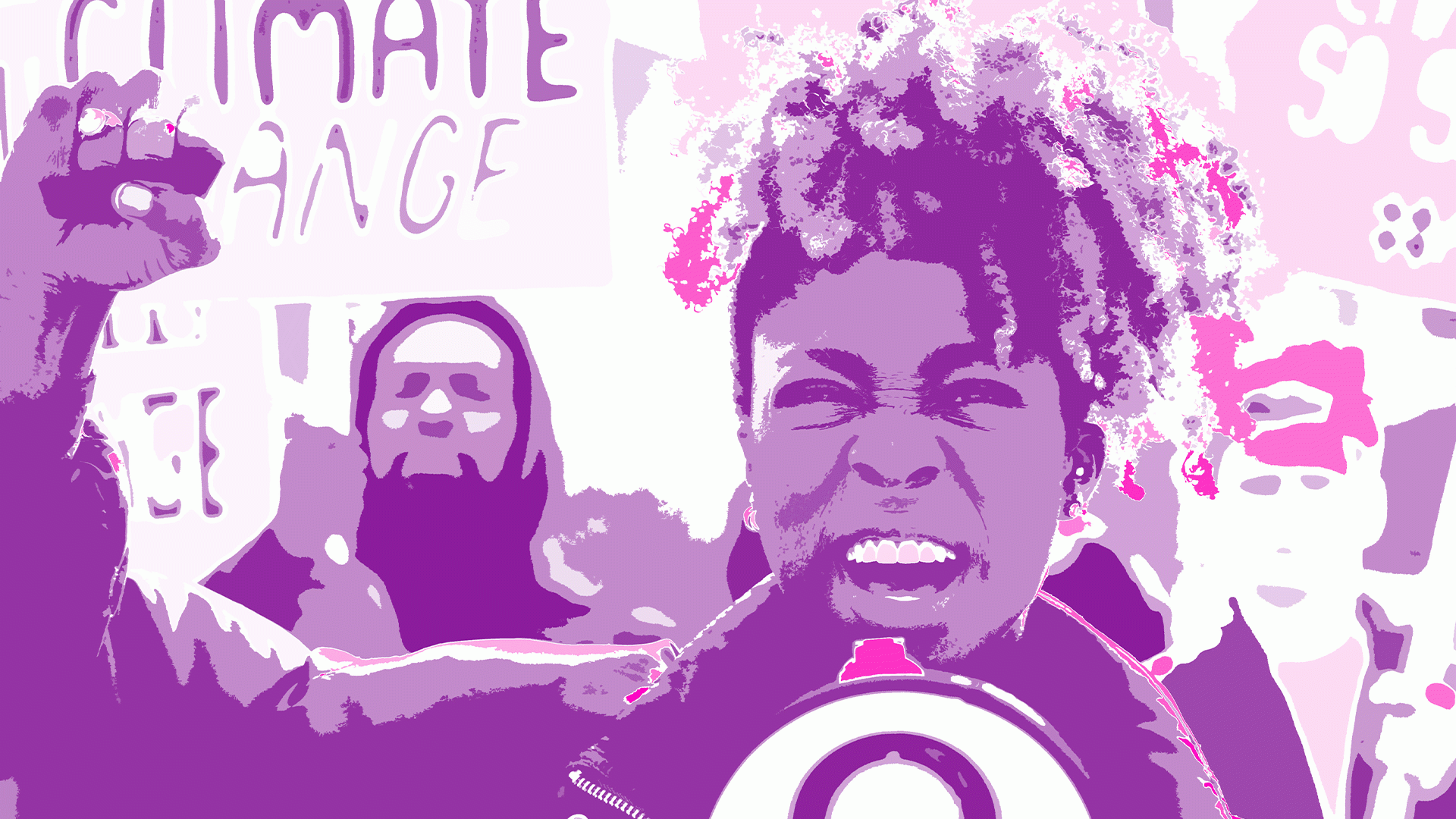
A recent poll by the Pew Research Center revealed that Black Americans are less likely to be supportive of Israel’s treatment of Palestinians compared to White Americans. Where do HBCU students stand in this debate, especially with protests at PWI universities nationwide? Should they be responsible for starting a protest movement? Bill Proctor, a political science professor at Florida Agricultural and Mechanical University, believes that HBCU students are enthusiastic about the cause but may not always openly show their support at the forefront of activism on this issue. He also questioned the narrative of calling out HBCUs.
“While questions are raised about the absence and silence of HBCU students protesting in recent days, the question must be raised, why aren’t non-elite PWI students protesting at all?” Proctor tells GU. “I dare say the economic power that students at elite protesting universities have suggests that those students feel insulated against political reprisals, economic retribution and legal setbacks.”
Evidence to support this claim can be traced to the 2024 weekend edition of USA Today dated May 3-5. A headline news story reveals that the arrests of protestors, covered in an article titled “Protest Charges Unlikely to Stick,” are expected to result in dropped charges, according to law professors and legal advisors cited in the lengthy piece. The story also indicates how many charges have been dropped in multiple states.
Read ‘Riot Pens: The Importance Of College Protesting’
Proctor stated that it is a mere fire drill exercise for elite students who face no major adverse consequences and that Black students cannot afford to end up in these types of situations because the punitive outcomes are often different. Additionally, several sources expressed that students are reluctant because they are concerned about how it could impact their financial situations and future career endeavors.
According to the U.S. Department Of Education, over 75 percent of HBCU students depend on Pell Grants, and nearly 13 percent rely on PLUS Loans to cover their college costs. At the forefront of the protest, Columbia University, only 15 percent of its students are receiving Pell Grants, with only zero to five percent of students using PLUS Loans. With the median household income for African Americans being $52,000, this demographic may not have the financial stability to withstand a layoff or loss of employment.
This issue is dangerous for some. On April 21, several former Google employees lodged a complaint with the US National Labor Relations Board after being terminated or placed on administrative leave last month for protesting against the company’s cloud-computing contract with the government of Israel. The workers, represented, in part, by the group ‘No Tech for Apartheid,’ which includes Google and Amazon employees, are seeking reinstatement to their positions and back pay. Bystanders were even fired. Again, this issue has proven to be very dangerous.
To be clear, Black students have a profound history of standing up against oppression and are currently participating in the movement. HBCU students were pivotal in the Civil Rights Movement and other subsequent campaigns. One notable example is the involvement of HBCUs in the anti-apartheid movement in South Africa during the 1980s. Students and faculty from various HBCUs, such as Howard University and Spelman College, actively participated in protests, demonstrations, and campaigns to pressure the U.S. government and corporations to divest from South Africa in opposition to its apartheid policies.
Read ‘Environmental Injustice Is The Racism We Can’t See’
Dr. Keneshia Grant, an Associate Professor of political science at Howard University, is also a former Student Body Vice President of FAMU (2004-2005) and an alumna of the university. “HBCU students have a long history of participating in protests,” Grant says. “When I was a student at FAMU, students marched to Florida’s Capital to protest the murder of Martin Lee Anderson and the end of affirmative action in the state of Florida, so it would be wrong to suggest that HBCU students don’t care about issues or express their care through protests.”
In April, students at Howard University set up a Liberation Zone to educate other students and faculty about current national and international political issues. The Liberation Zone is a tent on the main campus where diverse political ideas are exchanged and disseminated, and students have a space for discussions. Taiwo Adebowale, a freshman majoring in advertising, is a first-generation college student. She contributes to the Liberation Zone and understands that protesting these issues is a risk. “Even breathing and living, you never know when that chance of jeopardy will strike you down, and that’s just for being Black,” she tells GU. “Students at GW might face punishment for protesting, but being someone who is Black, I really have to be cautious about the way I interact with the world and people.”
Could it be that minority groups refrain from outwardly supporting certain causes out of fear of worse adverse repercussions? These ideas also convey that when it comes to punishment in America, African Americans have observed the harsh results of sentencing. The reluctance of HBCU students to openly engage in certain protests reflects broader concerns within minority communities. Economic disparities and potential career implications deter involvement despite these institutions’ rich history of activism. This underscores the unequal consequences faced by minority groups in advocating for change, echoing enduring struggles for equality in America.
About the Author: Asia Alexander is a student at Howard University, working on all things pop culture, politics, entertainment and business.